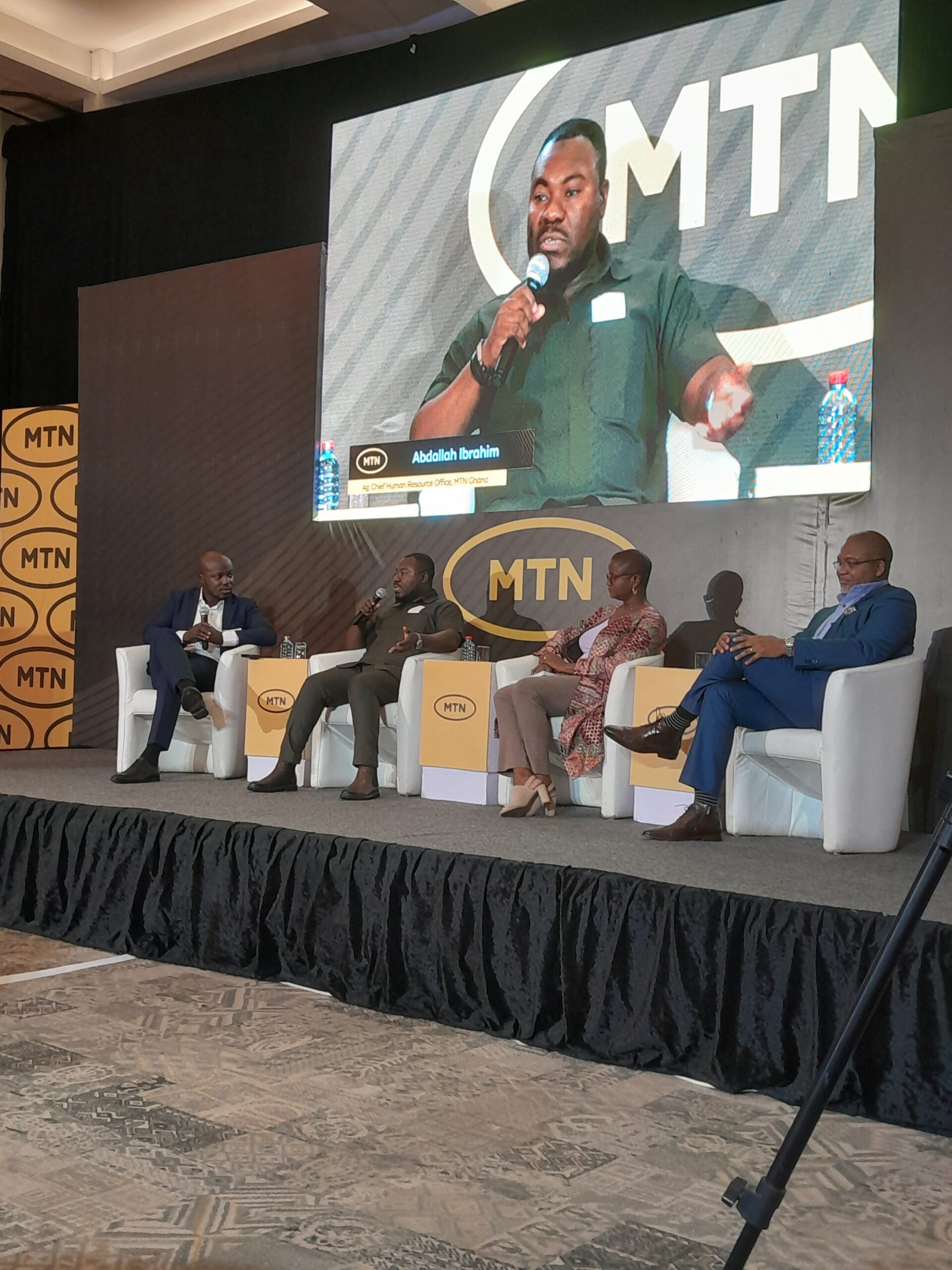
Accra, Ghana//-MTN Ghana has called on its fellow businesses to collaborate to bridge the rising skills gap facing the West African country.
To this end, MTN Ghana has been collaborating with businesses, business associations, and small and medium-sized enterprises (SMEs) since 2022 to build their capacities and bridge the skills gap, enabling them to grow and contribute their quota to the country’s socio-economic development.
Speaking at one such event, dubbed ‘MTN Business Series,’ the Acting Human Resource Officer of MTN Ghana, Abdallah Ibrahim, said the industry must collaborate more than it is doing today to bridge the wide skills gap.
“We can’t wait for policies to take the lead. I think the industry must take the lead. We all must do the little things that we are doing, if we all consolidate our efforts, it will have a big impact.
As I said, we give opportunities to students to do internships. If other organisations do the same thing, and we all do that, by the time the students come out of the universities, they will have practical examples of the things that they are learning, and it prepares them for the job market”.
So, that is what industry needs to do a bit more and be willing to invest more into training, rescaling, and upscaling of existing employees because they also need to be part of the future of Ghana, Mr Ibrahim added.
Touching on the critical role of spending and investment in key sectors, he underscored the importance of understanding how financial resources would be utilised to grow more businesses to help reduce rising unemployment among the youth of the country.
Mr Ibrahim said: “By diagnosing how funds are allocated, we can reinvest in areas that truly matter. Critical sectors like research—particularly in renewable energy and drought-resistant crops—should be prioritised. Moreover, exploring technological innovations can help generate jobs”.
Contributing to the skills gap debate, Managing Director of Unilever Ghana, Chris Wulf-Caesar, called for a bold and clear national vision to support the millions of graduates entering the country’s workforce annually.
“We need to examine our economy and shift away from dependence on extractive industries. Where will the world be in the next five years? What are we doing with the talent at our disposal? We must develop a clear policy with timelines, ensuring that within four years, we achieve specific goals, he asked during the event.
The Executive Director at the Center for Leadership, Ashesi University, Dr Esi E. Ansah, highlighted the importance of data-driven research to inform decision-making in critical sectors such as healthcare and business to create more job opportunities for graduates.
In that regard, she stated: “Leading nations invest heavily in research, empowering academics and industry to innovate and share knowledge. For every decision, there must be data that provides clarity and direction. Research lays the foundation for informed decision-making in all areas.”
Dr Ansah emphasised the importance of ethical leadership in ensuring progress in various sectors, including agriculture, technology, and artificial intelligence.
“While strategies are important, ethical leadership is critical. Suppose we lack leaders making the right decisions, progress stalls. National ethical leadership requires holding public servants, schools, and hospitals accountable. Building an ethical foundation starts at the top and trickles down”.


